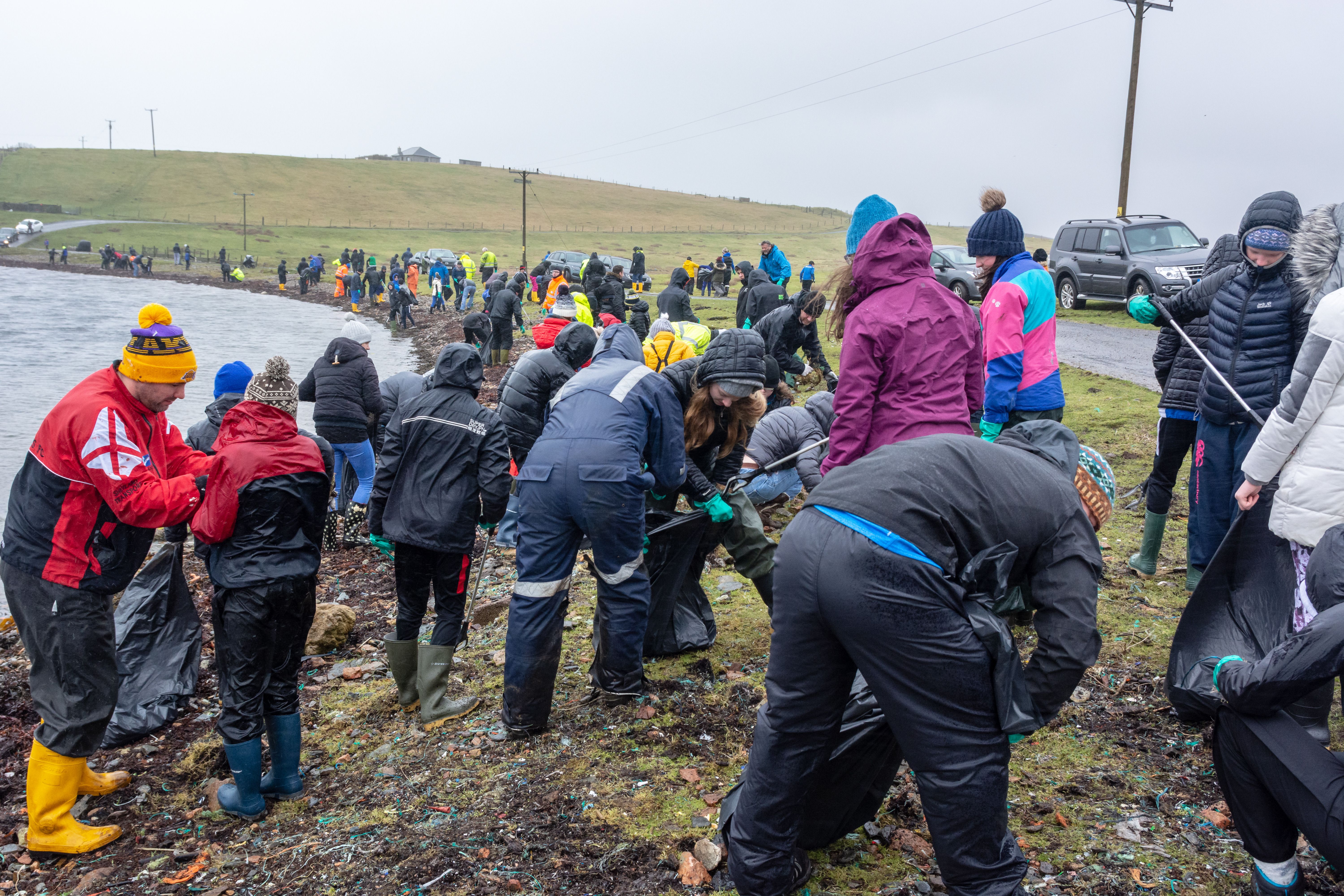Salmon farmer leads local beach cleans

RESIDENTS and local groups are being urged to join Scottish Sea Farms for a series of organised beach cleans, part of the Marine Conservation Society (MCS) Great British Beach Clean which takes place from September 20-23.
The salmon farmer first took part in the annual event last year, when its Orkney team organised two local beach cleans and collected 600kg of man-made waste.
This year, all three of the company’s farming regions – Orkney, Shetland and the Scottish mainland – are getting involved, and are inviting anyone living or working locally to join them.
Scottish Sea Farms managing director Jim Gallagher said: ‘Awareness of the need for us all to be responsible custodians of our environment has never been greater.
‘Getting involved in the MCS Great British Beach Clean is a way to make an immediate and positive difference, complementing the many initiatives underway at company level to reduce waste and strengthen our environmental credentials further.’
Staff from the company’s new hatchery at Barcaldine will be out in force to clean Teithil Beach on the banks of Loch Creran, on Saturday, September 21.
Then, on the Sunday, employees in Shetland will be cleaning the beach around Scottish Sea Farms’ shore base at Clift Sound in Burra.
Among those expected to join them are players from Shetland Junior Football Association (SJFA) local club teams, which Scottish Sea Farms sponsors via its Heart of the Community initiative.
Scottish Sea Farms’ Orkney representatives will pitch in on the final day, undertaking two beach cleans, at Echna Loch Bay in the north and Weyland Bay in the south.
Kirsty Brown, environmental scientist with Scottish Sea Farms and organiser for the company’s Orkney beach cleans, said: ‘We’ve organised one beach clean in the north and one in the south so that all our farm teams can get involved.
‘If those living or working locally can be persuaded to lend a hand too then all the better.
‘It only takes a couple of hours at most and we’ll supply high visibility safety vests, gloves, pickers and bags. All volunteers need to do is make sure they’re dressed appropriately for the local conditions.’
As well as the beach clean, a beach survey is undertaken at the same time, with everything from the type and size of material to the number of items collated.
The MCS attributes such data with helping bring about advances, including the plastic bag charge, the banning of microplastics in personal care products, better wet wipe labelling and growing calls for a tax on single-use plastics.
As Calum Sinclair, health and safety coordinator at Scottish Sea Farms and organiser for the company’s Shetland beach clean, said: ‘Quite simply, the more people that get involved, the more we can collectively do to preserve and protect our local environment – something that’s in everyone’s interest.’
Full details of each beach clean, and how to register, can be found online at scottishseafarms.com or via www.mcsuk.org/greatbritishbeachclean

